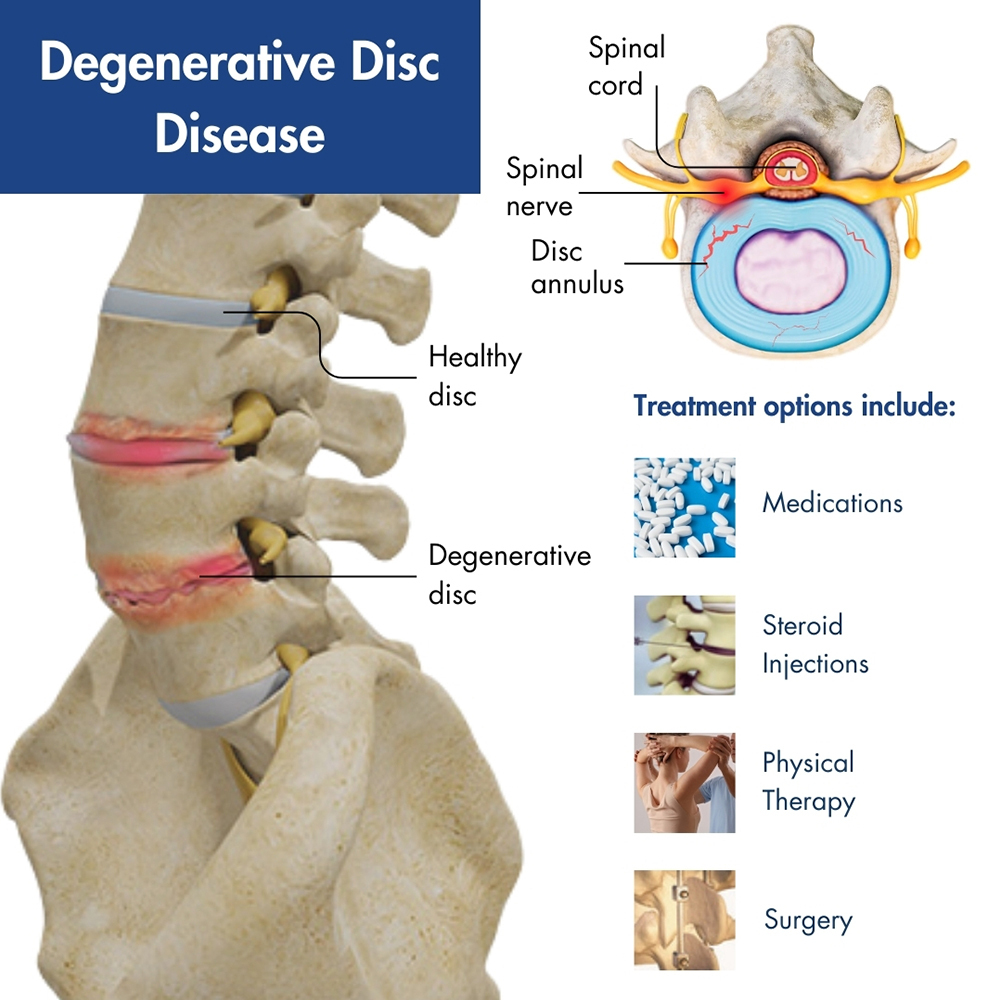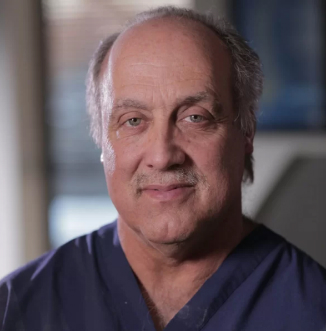We’re pleased to announce that Pain Physicians of Wisconsin is now Pro Spine Pain.
We’re pleased to announce that Pain Physicians of Wisconsin is now Pro Spine Pain.
Although back pain can have various origins, acute and persistent pain that is not relieved while seated normally indicates degenerative disc disease. It is particularly common in the lumbar spine (lower back). Spinal discs serve as buffers between adjacent vertebrae in the backbone, absorbing shocks. However, wear and tear or injury can cause them to shrink or rupture, applying pressure to the spine and pinching nearby nerve roots. As a result, this can lead to intense pain and additional related symptoms. For the best treatment for degenerative disc disease pain, reach out to Pro Spine & Pain, renowned pain specialists with five convenient locations in Wisconsin.

Linked to aging, degenerative disc disease is a painful condition characterized by the deterioration of intervertebral discs in the spine. These discs, situated between the vertebrae, serve as shock absorbers as the bones of your spine move. As the discs degrade with age, their ability to provide a cushion diminishes, leading to discomfort during movement.
Back pain can significantly impact daily life, impeding mobility and the ability to perform normal daily activities. For this reason, it is a common cause of disability. Seeking assistance from a board-certified specialist is crucial for diagnosis through examinations and imaging tests. Timely treatment for degenerative disc disease improves recovery times and enhances the prospects of complete recovery. The pain specialists at Pro Spine & Pain are highly skilled in providing non-surgical relief for a wide range of spinal conditions, including degenerative disc disease treatments.
Degenerative disc disease quietly progresses over time, often unnoticed until it becomes problematic. The spine is susceptible to wear and tear, with the speed of disc deterioration influenced by how much strain is placed on it.
Causes of degenerative disc disease include:
When discs are damaged, the inner jelly-like core, known as the nucleus pulposus, can leak, irritating nearby nerves and causing pain. At Pro Spine & Pain, our pain specialists utilize advanced diagnostic equipment to identify spinal issues accurately, enabling them to tailor a personalized treatment plan for you.
Your normal, day-to-day life can be disrupted by various symptoms of degenerative disc disease. Typically appearing between the ages of 30 and 40, it’s crucial to identify common signs early for prompt treatment.
Look out for symptoms such as:
Additional indicators of lower back pain include:
Degeneration of intervertebral discs results in debilitating pain and weakness. If you are experiencing any of these symptoms, seeking medical attention is crucial. Visit a WI pain center like Pro Spine & Pain for evaluation and effective treatment. Early diagnosis prevents further disc deterioration, with advanced procedures, including referral for surgery for degenerative disc disease, available for pain relief.
As we age, gradual deterioration of spinal discs is a common experience for everyone. Daily activities like walking, working, lifting, running, and carrying items contribute to wear and tear on intervertebral discs. Unfortunately, certain individuals face a higher risk of rapid degenerative disc disease.
Factors that increase susceptibility to accelerated spine degeneration include:
Consulting a pain management specialist at any of our five locations in Wisconsin will ensure you receive expert guidance on the prevention and management of various spinal conditions. Our pain doctors prioritize understanding your concerns before conducting comprehensive diagnostic tests.
Once a diagnosis is made, your Pro Spine & Pain doctor will determine the most suitable treatment for degenerative disc disease pain.
Treatment options include:
While some degree of disc degeneration is a natural part of aging, there are steps you can take to slow down rapid deterioration.
These preventive measures include:
If you’re experiencing persistent back problems, don’t hesitate to reach out to the specialists at Pro Spine & Pain for effective pain relief without surgery, including new treatments for degenerative disc disease.

Thomas Stauss, MD, completed both his undergraduate and medical studies at the esteemed University of Wisconsin in Madison. Dr. Stauss values having access to a wide array of cutting-edge treatment options, ensuring effective relief for his patients' discomfort and a significant enhancement in their quality of life. More specifically, he specializes in utilizing implanted devices to manage chronic pain. Dr. Stauss’s primary objective is to uphold the dignity of each patient while delivering ethical and professional services.
More about Dr. Stauss